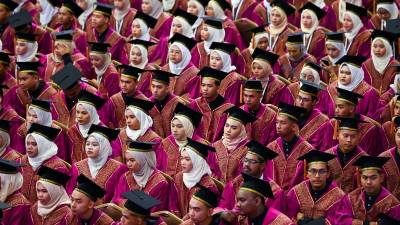PETALING JAYA: The Finance Ministry and Customs Department have been urged to issue an immediate joint clarification on the Sales and Service Tax (SST), following conflicting statements on whether it applies to scholarships.
National Association of Private Educational Institutions deputy president Dr Teh Choon Jin said the matter must be settled officially to avoid confusion and ensure schools could continue awarding scholarships without hesitation.
“Only a clear directive and updated public FAQs can prevent further confusion, protect deserving students and ensure consistent enforcement.”
The debate intensified after Finance Deputy Minister Lim Hui Ying said scholarships, education loans and fee exemptions for Malaysian students would not be taxed. But an internal Customs communique stated that tuition fees above RM60,000 per student annually remain taxable at 6%, even if fully or partially covered by scholarships.
Teh said the July 1 service tax expansion affects only a narrow segment: of private schools charging above RM60,000 per year and higher education institutions for non-Malaysian students. Government data shows only 27 of 569 registered private schools fall into this bracket.
“Still, the treatment of scholarships has become a flashpoint. If scholarships are taxed, the very purpose of offering financial relief is undermined. A scholarship should never be treated as a taxable transaction.”
He said inconsistent messaging erodes confidence, complicates compliance and may impact scholarships.
“Schools could scale back financial aid to avoid risk exposure, while students and parents lose trust in the fairness and stability of education financing. Over time, this could damage Malaysia’s reputation as a reliable education hub, pushing families and investors elsewhere.”
Teh added that taxing scholarships would ultimately pass costs to parents, blunting the purpose of financial aid.
“Scholarships are not a luxury, they are a lifeline for access and upward mobility. Taxing them disadvantages students who most need support.”
He cautioned that with fewer scholarships, access to quality private education would shrink, particularly at institutions subject to SST, deepening inequality and making private schooling the preserve of the wealthy.
“Education is a competitive sector. If Malaysia is seen as inconsistent or unpredictable, families may choose neighbouring countries where rules are clearer and more stable,” he said.
